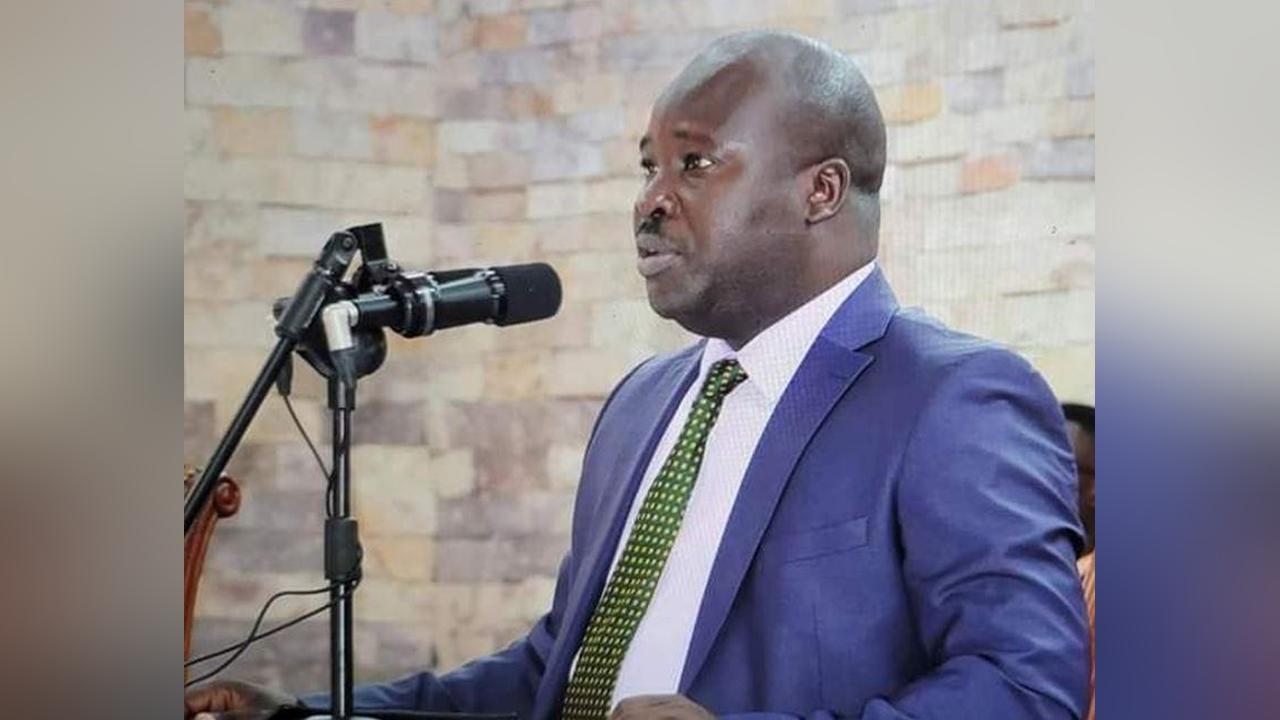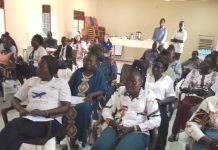Jenifer James
Africa-Press – South-Sudan. The First Deputy Speaker of the Reconstituted Transitional National Legislative Assembly, Oyet Nathaniel, raised concerns over the gap in the budget, which he says could affect the core business of the government, which is implementing the revitalized peace agreement.
Addressing the media in Juba on Sunday, Oyet argued that the executive failed to allocate enough resources for the implementation of critical tasks in the proposed budget, and this could affect the roadmap, which entails crucial pre-election tasks.
“This is the last financial year of the budget and roadmap that extended the revitalized peace agreement, and we expect the budget at hand to address a number of key issues pertaining to the agreement and pertaining to the welfare of our people, the citizens of South Sudan,” Oyet said, as he emphasised that the fiscal year 2023-2024 budget failed to address the issues pertaining to the conduct of national elections by the end of the roadmap of the R-ARCSS.
According to Oyet, the budget has not allocated funds for security arrangements, repatriation and resettlement of refugees, population census, constitution-making and truth justice, healing, or the reconstitution of the National Elections Commission.
“The failure to allocate resources for the implementation of these critical tasks may affect the roadmap, including the conduct of elections by December 22, 2024,” he noted.
But last week, the chairperson of the information committee at the national assembly, John Agany hailed the budget as all-inclusive after public participation, declaring that “there can be no perfect budget.”
About the roadmap
Last year, President Salva Kiir and the party leaders to the peace agreement agreed on an extended transitional period of 24 months to complete the pending task before the election on December 2024.
The roadmap commenced on February 22, 2023, and ends on February 22, 2025.
The roadmap indicated that the activities that were pending were more than those that were in progress.
For instance, Chapter Five on building trust, reconciliation, and healing, and Chapter Six on the enactment of election law to guide the electoral process to ensure a free, fair, credible, and democratic election have not been touched and they contain 11 and 17 activities, respectively.
The enactment of an election law to guide the electoral process was ratified in July 2022. But the establishment of a commission of truth, reconciliation, and healing and its legal framework are expected to be passed by RTNLA by September 2022.
Although it seems to have a workload, the pending tasks are technical and require a lot of intellect and critical thinking for the government to implement them.
Chapter one has 18 articles out of 20; the chapter reportedly has 283 actions, but the roadmap did not clarify how many actions from the articles were completed.
It has only one article and two sub-articles pending. Much has been done in this chapter compared to other chapters of the agreement.
In Chapter 2, there are five articles and 114 sub-articles in total. The roadmap states that all the pre-transitional period activities have been implemented. But five activities are said to be in progress and have seen a significant delay.
The pending tasks include a collection of long-range and medium-range weapons, graduation and redeployment of forces and cantonment, screening, and reorganization, among other activities, but their number is not necessarily indicated clearly.
“Redeployment commences after graduation on August 30th, 2022 for two months ending on November 30th, 2022,” read the roadmap.
“Phase-2 on the cantonment, screening, training, reorganization, unification, graduation, and redeployment of the forces currently assembled starts on November 30th, 2022.”
Chapter Three on humanitarian assistance and reconstruction has 29 actions, of which two are completed, 18 are in progress, and 9 are pending, according to the roadmap.
Source: The City Review South Sudan
For More News And Analysis About South-Sudan Follow Africa-Press






